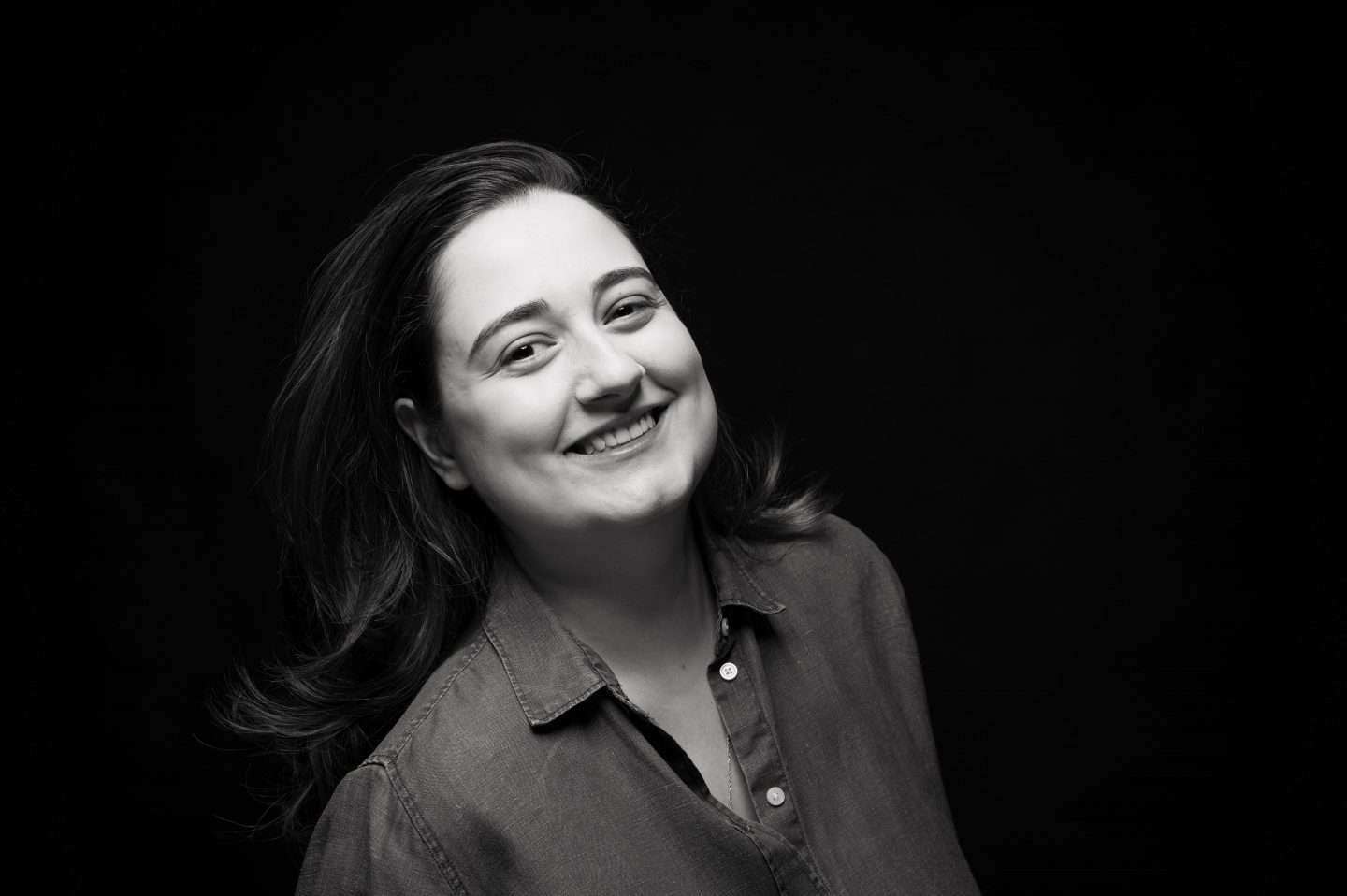We chat to theatre producer Antonia Georgieva and get to hear about what it takes to work as a producer. Plus read about the new bisexual play How We Begin, that she recently worked on with Elisabeth Lewerenz and Elizabeth Benbow.
As a producer that has worked on many great shows, what drew you to co-produce How We Begin?
My passion and artistic values lie in creating intersectional theatre that is bold, unapologetic, and has the audience’s experience at its heart. How We Begin aligns perfectly with that, so when I first heard about from director Elizabeth Benbow, I immediately resonated with what the story stands for. I am extremely excited to have the opportunity to co-produce How We Begin and bring it to the VAULT Festival audience. The festival, known for its celebration of emerging talent in the performing arts, is the perfect platform to showcase this special piece. The play is coming full circle as it was initially written during the VAULT New Writers Programme back in 2019. To have it play at the festival where it all began is truly fulfilling, and I am excited by its potential to reach an even bigger audience. I have thoroughly enjoyed seeing the team’s hard work on the show and seeing it all come together. Additionally, having the script selected for publication by Nick Hern Books and featured in the Plays from VAULT 6 anthology is a great recognition of the quality of the writing and its importance and impact. This is a story that explores identity in a powerful, joyful, and unfiltered way, and I’m eager to see how audiences will connect to it.

Tell us a little about the storyline of How We Begin, and why people must see it.
How We Begin sees two best friends – Helen and Diana – who just like all of us are simply trying to figure it all out, climb the career ladder and get their lives in order. That is until they discover their feelings for one another and embark on a big bisexual love affair. We take the audience on this journey of self discovery. At its core, How We Begin is a beautifully written love story that embraces the complexities and imperfections of the queer experience. The show premieres on Valentine’s Day, which also serves as a fitting reminder that not all individuals have the freedom to express their love openly. Our goal is for audiences to not only sense the passion we have put into creating this production, but also to immerse themselves in the celebration of all love.
What are your thoughts around lesbian representation and theatre?
There are some companies and theatres that showcase brilliant queer work, Soho Theatre and King’s Head Theatre to name a few. That being said, often the work with great queer representation stays at the fringe level rather than generating interest at a larger scale. This is perhaps the shortcoming of the form. Where TV and film may have a wider reach and thereby a bigger impact, theatre still has some way to go. But I know some amazing producers and creatives out there who genuinely care about showcasing the stories and experiences of marginalised communities in order to promote greater empathy, as well as provide a platform for underrepresented voices in the industry.
Do you have any tips for our readers that would like to get into production?
Gain experience in any way you can, whether it’s through volunteering, internships or shadowing a producer. Take advantage of as many training and artist development opportunities as you can (particularly while you’re still starting out as a lot of those will be limited in age usually for under 25s). This will help you build a strong peer network that you will be able to call upon even years down the line. This brings me to my next point: build and maintain a diverse network of contacts in the industry. Ask people to meet for a coffee chat and introduce your work or the kind of work you want to be making. Stay informed about current industry conversations and their political and social implications. Be a part of the conversations where you can and is appropriate to do so. On the more practical side of things, work towards developing a strong understanding of the business model of theatre, whether that’s in the commercial or subsidised sector. Understand where funding could come from and be flexible in your approach towards fundraising and monetisation. And lastly, be prepared to work hard and wear many different hats.
Talk us through your typical day routine.
No two days are really alike and that’s one of the exciting things about what I do as a freelance producer in theatre. My schedule can vary greatly depending on the stage of a project and the priorities for any given week. On some days I’m keeping track of budgets and finances or drawing up contracts for creatives, and on others, I might be planning and organising promotional activity and marketing campaigns. A typical day for me, after a mandatory shot of strong espresso, would definitely start with checking emails and messages to stay on top of things and make sure there aren’t any immediate fires to put out. My days would also usually include some coordinating with the creative team, cast, and crew. I might also be liaising with the venue on the logistical aspects of the production or attending meetings with potential collaborators or partners. The role is very dynamic and that’s one of the main things I love about it!
If you could use a magic telephone to call yourself at 15 years old what would you say?
Where can I find this magic telephone because I need to make a phone call right now? This is actually something I’ve thought about quite a bit. As a born perfectionist, I think I’ve always worried about doing the right thing and making the right choices, which was fertile ground for the seeds of doubt to develop. It would be fair to say that like many others in the creative industries when I was making my first steps into my creative career, I suffered from the classic case of impostor syndrome. I probably still do a little bit. So if I could call my 15-year-old self right now, I would tell her to not be afraid to take risks, try new things, and step out of her comfort zone. Stay curious, hard-working, and passionate about learning and discovering new possibilities and eventually, you will land in the right circles and find the right place. And lastly, make sure to make time for yourself and those your care about – the constant grind doesn’t actually need to be that constant.
Who are your role models and why?
I look up to true trailblazers in the performing arts, particularly women who are at the top of their careers and who create exciting and powerful work. For example, Sonia Friedman, who is one of the biggest commercial producers on the UK theatre scene, is someone whose work really resonates with me and whose steps I’d love to follow.
Do you have any other exciting lesbian focused theatre projects coming up?
Hopefully, it will be the next big run for How We Begin at a major London venue, so that the story can reach an even wider audience!
Where and when can people see How We Begin?
How We Begin will be playing at VAULT Festival from 14-19 February 2023. We open on Valentine’s Day and we’re on for 7 performances in total that week.
25% discount off tickets to HOW WE BEGIN for Nonchalant readers.
Use code: BEGIN25
When on the booking page, scroll down to the bottom before selecting a ticket and enter the above code in the promo code box, and voila!
Tickets from £13.50
Thanks for chatting to us!
Team Nonchalant x


